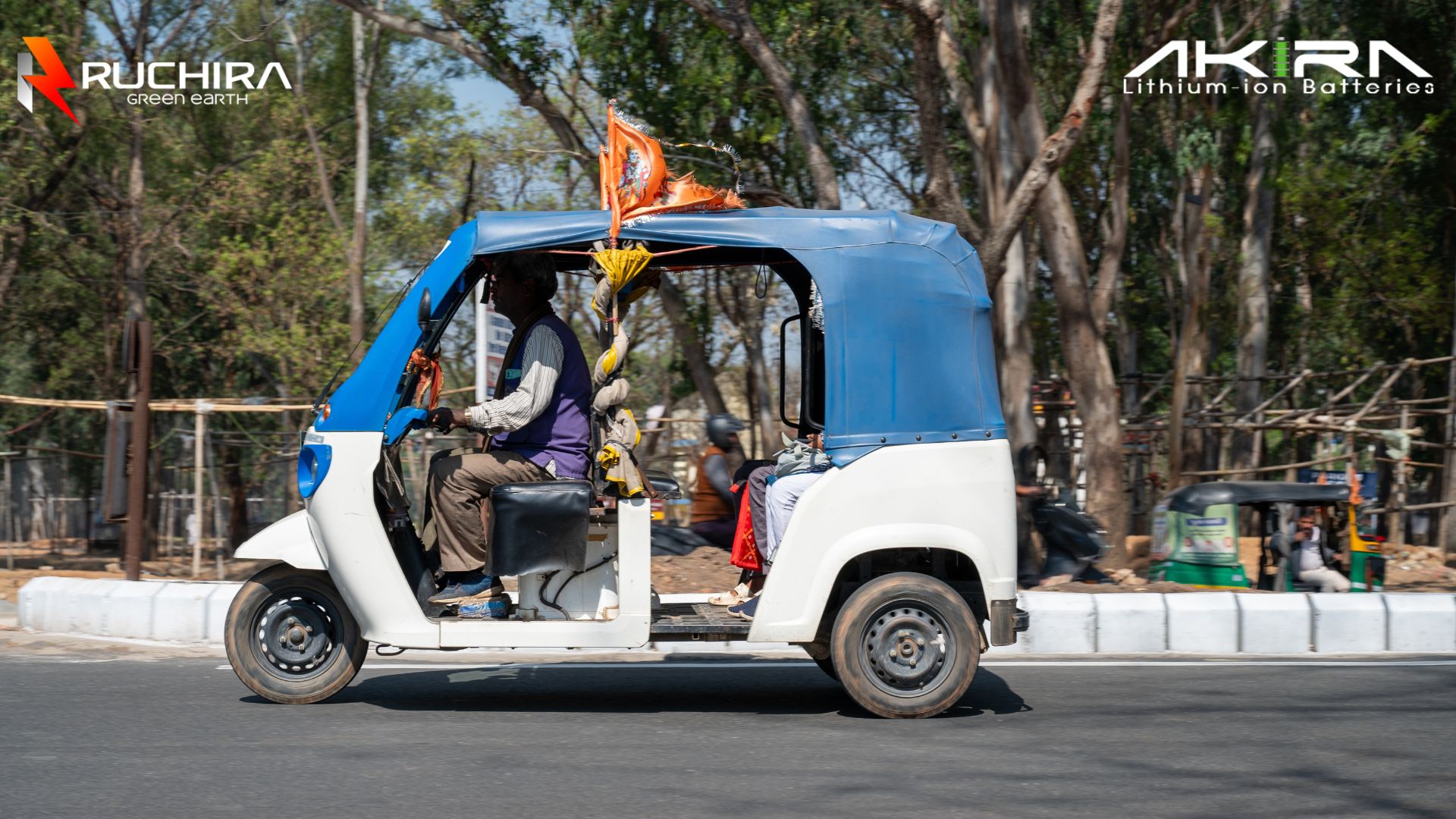When it comes to powering electric three-wheelers, the battery is one of the most critical components. It directly impacts the vehicle’s performance, operating cost, and environmental footprint. Traditionally, lead-acid batteries were the go-to choice for electric vehicles, including three-wheelers. However, with advancements in battery technology, three-wheeler lithium-ion batteries have emerged as a superior alternative.
In this article, we will compare three-wheeler lithium-ion batteries with lead-acid batteries to help you understand why lithium-ion technology is rapidly becoming the preferred choice in the industry.
1. Energy Density and Capacity
One of the most significant differences between lithium-ion and lead-acid batteries is energy density. Energy density refers to how much energy a battery can store relative to its size and weight. Three-wheeler lithium-ion batteries have a much higher energy density compared to lead-acid batteries. This means that lithium-ion batteries can store more energy in a smaller, lighter package, resulting in longer driving ranges and less weight added to the vehicle.
For three-wheelers, which often carry passengers or cargo, a lighter battery reduces the vehicle’s overall weight, improving efficiency and performance. On the other hand, lead-acid batteries are bulkier and heavier, reducing the three-wheeler’s speed and performance.
2. Charging Time
Another critical factor to consider when comparing the two battery types is the charging time. Lithium-ion batteries are known for their fast-charging capabilities, which can significantly reduce downtime for electric vehicles. A three-wheeler lithium-ion battery can be charged to full capacity in just a few hours, ensuring that the vehicle is back on the road quickly.
In contrast, lead-acid batteries take much longer to charge, often requiring several hours or even overnight charging. For businesses that rely on electric three-wheelers for daily operations, such long charging times can lead to decreased productivity.
3. Cycle Life and Longevity
The longevity of a battery is measured in charge and discharge cycles. A charge cycle is completed when a battery is fully charged and then discharged. Three-wheeler lithium-ion batteries have a significantly longer cycle life than lead-acid batteries. A typical lithium-ion battery can last up to 1,000 to 2,000 cycles, while lead-acid batteries generally last around 300 to 500 cycles.
This extended lifespan makes lithium-ion batteries more cost-effective in the long run, as they need to be replaced far less frequently than lead-acid batteries. Although lithium-ion batteries may have a higher upfront cost, their longevity and reduced maintenance make them a better investment.
4. Maintenance Requirements
Lead-acid batteries require regular maintenance to function efficiently. This includes checking electrolyte levels, cleaning terminals, and ensuring proper ventilation to prevent overheating. Failure to maintain a lead-acid battery properly can reduce its lifespan and lead to performance issues.
In contrast, three-wheeler lithium-ion batteries are virtually maintenance-free. They do not require regular monitoring, topping off of fluids, or special care. This convenience makes lithium-ion batteries ideal for users who want a hassle-free experience with their electric three-wheeler.
5. Environmental Impact
With growing concerns about environmental sustainability, the choice between lithium-ion and lead-acid batteries also hinges on their environmental impact. Lead-acid batteries contain toxic lead and acid, which can pose a threat to the environment if not disposed of properly. The recycling process for lead-acid batteries is also energy-intensive and can generate harmful emissions.
Three-wheeler lithium-ion batteries, on the other hand, are more environmentally friendly. They contain fewer toxic materials and are more energy-efficient during production and recycling. Moreover, their longer lifespan reduces the need for frequent replacements, leading to less waste.
Conclusion: Why Lithium-Ion Is the Future
While lead-acid batteries have been around for decades, three-wheeler lithium-ion batteries offer numerous advantages that make them the superior choice for modern electric vehicles. From their higher energy density and faster charging times to their longer lifespan and lower environmental impact, lithium-ion batteries outshine lead-acid batteries in almost every aspect.
For three-wheeler owners and businesses looking to invest in reliable, efficient, and eco-friendly battery technology, lithium-ion is undoubtedly the way forward. At Akira, we specialize in manufacturing high-quality three-wheeler lithium-ion batteries that offer top-tier performance and durability, ensuring that your vehicle runs smoothly for years to come.
Switch to lithium-ion today and experience the future of electric three-wheeler batteries!bly for a long time.
